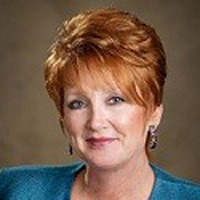To Make the Most of Your 401(k), Hire an Adviser Right Now
Your 401(k) may be your biggest retirement asset, yet chances are you’re not really managing it. More companies are letting their employees hire professional help to actively manage their money with a self-directed brokerage account.


Profit and prosper with the best of Kiplinger's advice on investing, taxes, retirement, personal finance and much more. Delivered daily. Enter your email in the box and click Sign Me Up.
You are now subscribed
Your newsletter sign-up was successful
Want to add more newsletters?

Delivered daily
Kiplinger Today
Profit and prosper with the best of Kiplinger's advice on investing, taxes, retirement, personal finance and much more delivered daily. Smart money moves start here.

Sent five days a week
Kiplinger A Step Ahead
Get practical help to make better financial decisions in your everyday life, from spending to savings on top deals.

Delivered daily
Kiplinger Closing Bell
Get today's biggest financial and investing headlines delivered to your inbox every day the U.S. stock market is open.

Sent twice a week
Kiplinger Adviser Intel
Financial pros across the country share best practices and fresh tactics to preserve and grow your wealth.

Delivered weekly
Kiplinger Tax Tips
Trim your federal and state tax bills with practical tax-planning and tax-cutting strategies.

Sent twice a week
Kiplinger Retirement Tips
Your twice-a-week guide to planning and enjoying a financially secure and richly rewarding retirement

Sent bimonthly.
Kiplinger Adviser Angle
Insights for advisers, wealth managers and other financial professionals.

Sent twice a week
Kiplinger Investing Weekly
Your twice-a-week roundup of promising stocks, funds, companies and industries you should consider, ones you should avoid, and why.

Sent weekly for six weeks
Kiplinger Invest for Retirement
Your step-by-step six-part series on how to invest for retirement, from devising a successful strategy to exactly which investments to choose.
Employer-sponsored 401(k) plans provide employees with the opportunity to contribute to their retirement account, access tax benefits and receive matching contributions from the employer. Usually, employers offer a list of investment options that the employee can choose from, but the employee cannot make choices outside of that menu. But many employees are falling short in fully understanding the structure of their 401(k) plans. They are suffering from information overload, and many participants are wishing for more direction or a “do it for me” option, according to a recent J.P. Morgan 2021 Defined Contribution Survey.
Managing your 401(k) account can be time consuming and intimidating for many people. They are busy doing their jobs and tending to family and simply do not have the time or expertise to manage their accounts. Luckily, an increasing number of American employers (40%) are now offering employees the option to open a “self-directed brokerage account” (SDBA) within their 401(k) as an alternative to only investing in the company-selected plan menu.
Depending on how the employer sets it up, an SDBA may allow the employee to hire a third-party investment adviser to manage their retirement plan account. This allows the employee to select investments that are outside of the limited plan menu, many times even allowing for the buying and selling of individual stocks, either on their own or with the assistance of their chosen investment adviser. Also, depending on how the employer sets it up, the investment adviser’s fee can come directly out of the employee’s 401(k) plan account, just like the typical investment and management fees that automatically come out of employees’ 401(k) accounts currently.
From just $107.88 $24.99 for Kiplinger Personal Finance
Become a smarter, better informed investor. Subscribe from just $107.88 $24.99, plus get up to 4 Special Issues

Sign up for Kiplinger’s Free Newsletters
Profit and prosper with the best of expert advice on investing, taxes, retirement, personal finance and more - straight to your e-mail.
Profit and prosper with the best of expert advice - straight to your e-mail.
If your 401(k) plan is falling short for any of the aforementioned reasons, and your employer offers an SDBA, seeking an adviser might be the right path for you. With an adviser, you may be better positioned to optimize your retirement plan and fulfill your overall financial goals.
Why Should You Hire an Adviser?
In a Harris poll, 44% of Americans without financial advisers are now reconsidering engaging them after the devastating 2020 events. The impact of the current pandemic might have influenced more Americans to re-evaluate their financial wellness, and a financial adviser would be one of the best assets to have going forward.
With this outlook, an SDBA adviser can focus on enhancing your investment strategies to meet your long-term goals. Through their experience and knowledge, they will help you build your personalized retirement wealth plan as you pursue your own career goals.
This way, you have your own professional working for you, applying the knowledge that they have acquired over their careers, to benefit you.
When Is It the Right Time to Hire an Independent Adviser?
As your income levels rise, there is more need for informed investment decision-making. The wider range of investment choices that an SDBA offers means you can invest in multiple sectors, such as financial services, technology or energy. Maybe you want to participate in the growing industry of 5G or block chain technology. Since there is more to navigate, unless you are a very experienced investor, it is only prudent that you hire an experienced adviser to better manage your portfolio.
It is important to first identify if your 401(k) plan offers an SDBA and what are the terms. Does it open the investing choices up to a wider menu of mutual funds, but still limited, or does it open the investment choices further so that you can buy a broader range of mutual funds, or ETFs, or stocks and bonds? Does it allow you to hire your own adviser, and does it allow your adviser’s fee to be paid out of your account? Your chosen adviser can assist you in answering these questions.
The gaining popularity of the SDBA option does expose investors to more issues compared to the limited company-chosen menu of investments. One among them is having a more diversified range of investment options, which can be confusing. But having that choice is the purpose of the SDBA, and you can “outsource” the confusion and concerns to your adviser.
The original reason for having an SDBA option was for the do-it-yourself investor, but it has turned out to be a great vehicle to allow an employee to get a more customized plan and have someone else manage it for them.
Moving Forward
While an employee-managed 401(k) can be a good investment tool for some people, hiring an independent adviser is the best choice for those who want tailor-made investment choices or more aggressive financial options but don't have the time and energy to commit to the process.
Securities offered through Mid Atlantic Capital Corporation (MACC). Member FINRA/SIPC. Investment advice offered through GWM Advisors LLC DBA Goss Advisors, a registered investment adviser. Goss Advisors and the Pastor Financial Group are affiliated entities to MACC and under common control of NewEdge Capital Group LLC.
Any opinions expressed in this article are those of the author and do not necessarily represent the opinions of GWM Advisors LLC, Mid Atlantic Capital Corporation, or the NewEdge Capital Group LLC. The information provided herein is for informational and educational purposes only and is not meant to be a solicitation for a specific security or service.
Profit and prosper with the best of Kiplinger's advice on investing, taxes, retirement, personal finance and much more. Delivered daily. Enter your email in the box and click Sign Me Up.

Renée Pastor is Founder & Wealth Manager at The Pastor Financial Group, a comprehensive financial planning and wealth management practice headquartered in New Orleans. The firm specializes in retirement planning and 401(k) management for families and individuals nationwide. To learn more, please visit thepastorgroup.com.
-
 Quiz: Do You Know How to Avoid the "Medigap Trap?"
Quiz: Do You Know How to Avoid the "Medigap Trap?"Quiz Test your basic knowledge of the "Medigap Trap" in our quick quiz.
-
 5 Top Tax-Efficient Mutual Funds for Smarter Investing
5 Top Tax-Efficient Mutual Funds for Smarter InvestingMutual funds are many things, but "tax-friendly" usually isn't one of them. These are the exceptions.
-
 AI Sparks Existential Crisis for Software Stocks
AI Sparks Existential Crisis for Software StocksThe Kiplinger Letter Fears that SaaS subscription software could be rendered obsolete by artificial intelligence make investors jittery.
-
 Social Security Break-Even Math Is Helpful, But Don't Let It Dictate When You'll File
Social Security Break-Even Math Is Helpful, But Don't Let It Dictate When You'll FileYour Social Security break-even age tells you how long you'd need to live for delaying to pay off, but shouldn't be the sole basis for deciding when to claim.
-
 I'm an Opportunity Zone Pro: This Is How to Deliver Roth-Like Tax-Free Growth (Without Contribution Limits)
I'm an Opportunity Zone Pro: This Is How to Deliver Roth-Like Tax-Free Growth (Without Contribution Limits)Investors who combine Roth IRAs, the gold standard of tax-free savings, with qualified opportunity funds could enjoy decades of tax-free growth.
-
 One of the Most Powerful Wealth-Building Moves a Woman Can Make: A Midcareer Pivot
One of the Most Powerful Wealth-Building Moves a Woman Can Make: A Midcareer PivotIf it feels like you can't sustain what you're doing for the next 20 years, it's time for an honest look at what's draining you and what energizes you.
-
 I'm a Wealth Adviser Obsessed With Mahjong: Here Are 8 Ways It Can Teach Us How to Manage Our Money
I'm a Wealth Adviser Obsessed With Mahjong: Here Are 8 Ways It Can Teach Us How to Manage Our MoneyThis increasingly popular Chinese game can teach us not only how to help manage our money but also how important it is to connect with other people.
-
 Looking for a Financial Book That Won't Put Your Young Adult to Sleep? This One Makes 'Cents'
Looking for a Financial Book That Won't Put Your Young Adult to Sleep? This One Makes 'Cents'"Wealth Your Way" by Cosmo DeStefano offers a highly accessible guide for young adults and their parents on building wealth through simple, consistent habits.
-
 Global Uncertainty Has Investors Running Scared: This Is How Advisers Can Reassure Them
Global Uncertainty Has Investors Running Scared: This Is How Advisers Can Reassure ThemHow can advisers reassure clients nervous about their plans in an increasingly complex and rapidly changing world? This conversational framework provides the key.
-
 I'm a Real Estate Investing Pro: This Is How to Use 1031 Exchanges to Scale Up Your Real Estate Empire
I'm a Real Estate Investing Pro: This Is How to Use 1031 Exchanges to Scale Up Your Real Estate EmpireSmall rental properties can be excellent investments, but you can use 1031 exchanges to transition to commercial real estate for bigger wealth-building.
-
 Should You Jump on the Roth Conversion Bandwagon? A Financial Adviser Weighs In
Should You Jump on the Roth Conversion Bandwagon? A Financial Adviser Weighs InRoth conversions are all the rage, but what works well for one household can cause financial strain for another. This is what you should consider before moving ahead.